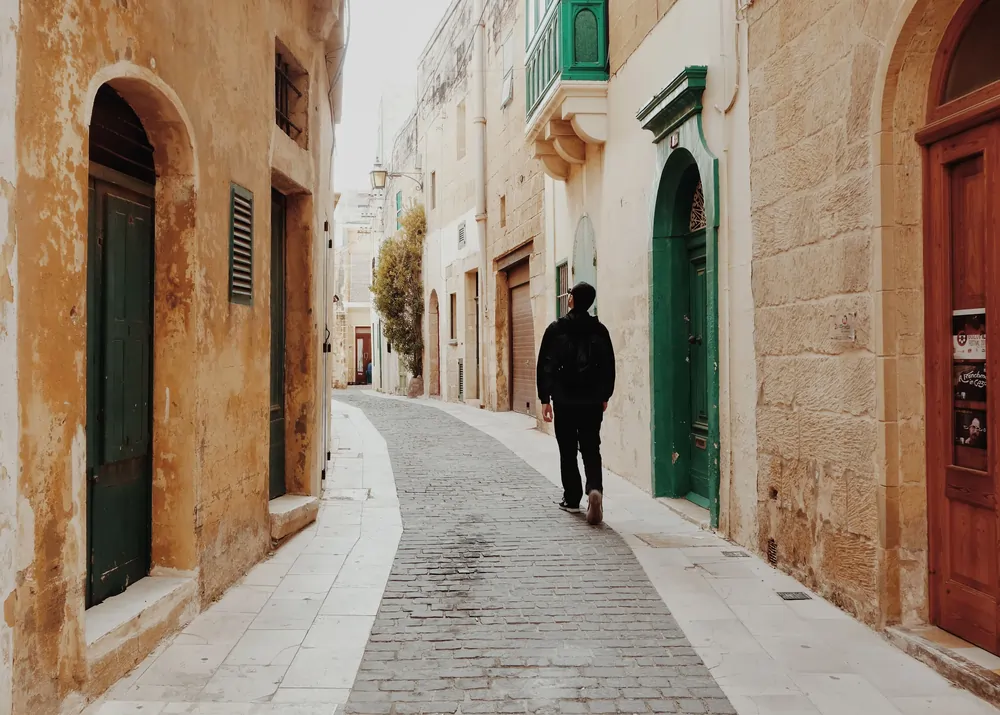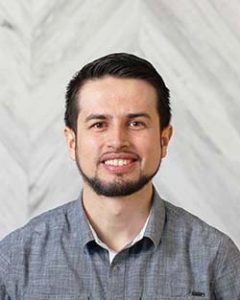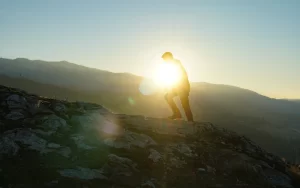
Confess It: Becoming Free from the Power of Regrets
 Regrets affect us negatively. It is important we confess them before God. We regret relationships, decisions that have marked us, or even things that happen to us. We regret things we have done. What if that hadn’t happened? What would my life be like? Have you experienced this? Do you have regrets? Instead, what if we used all that energy that we put into remembering what was lost and allow it to be transformed by God into something that allows us to move forward?
Regrets affect us negatively. It is important we confess them before God. We regret relationships, decisions that have marked us, or even things that happen to us. We regret things we have done. What if that hadn’t happened? What would my life be like? Have you experienced this? Do you have regrets? Instead, what if we used all that energy that we put into remembering what was lost and allow it to be transformed by God into something that allows us to move forward?
A way to look at this is to think about how a rearview mirror is positioned on a car. It is there so that while we look at the road, we can have a reference to where we are coming from and what is behind us. However, there is a huge sheet of glass in front of the car right where the small mirror hangs, so we can look at the road ahead widely. What would happen if instead of focusing on the road ahead, we gazed permanently on the small rearview mirror that only gives us a view of the back? We will for sure crash into something; we will not be able to see the road that we should follow, and most certainly, we will not get to where we need to go, losing any sense of direction.
Where does our focus lie in life? In our past? In the regrets? Or on the road ahead where life awaits us, where God has plans prepared for us? We can look at the rearview mirror to remember where God has rescued us from, how He did it, and to remind ourselves what He did in the past, He will do again and greater things. God reminds us and promises us that He will work in our lives, doing new things ahead.
Isaiah 43: 18-19 (NRSVUE)
Do not remember the former things or consider the things of old. I am about to do a new thing; now it springs forth; do you not perceive it? I will make a way in the wilderness and rivers in the desert.
How can we be free from a life of regrets? Here are 3 actionable things to think about:
1) Do not cover it up.
One day, King David made a huge mistake. He allowed himself to be blinded by lust. Then by the fear of covering up what he had done, he became guilty of murder. David decided not to go to battle, as it was his responsibility as king, but instead sent his general and servants. He got up late from bed and from his terrace, he saw a woman bathing. He let himself be carried away by his desires. He sent for the woman and slept with her.
Then the woman returned to her house. The woman ends up pregnant, and David’s hidden sin is not so hidden (2 Samuel 11: 1-5). David then tried to cover up what happened. He sought to get rid of the woman’s husband, one of his most capable soldiers, by putting him in the thick of the battle. David became more entangled; his reaction was worse than the previous action.
When we seek to cover our faults, it is like when a crack appears on a wall. Instead of fixing the wall, we take a brush with paint and cover it, but the crack comes to the surface, and we go back and paint it, and it comes out again. No matter how many layers of paint we use to cover it, it will always come through. Many times, our instinctive reaction to something we didn’t think we were capable of doing is to cover it up, deny it, hide it, and make sure that no one notices. Then we fall into deception and lies. And little by little, that begins to destroy our soul.
Instead of covering it up, we can allow God to bring that to light, to let the Holy Spirit speak to us and confront it.
2) Let God confront it.
Can you imagine how David must have felt all that time while he had his sin hidden? He was still the king. Would he go to the temple to worship like he used to do? Did he feel calm in his house with his family, knowing that he had taken a man’s wife and then organized the death of her husband? How would David’s conscience be?
God sent the prophet Nathan to David to expose his sin. In reality, God gives David a lifeline to get out of the hole he had dug. Nathan tells David a story of a man who takes advantage of another man and David firmly responds that the abusive man should die, not knowing that he was that man. David, you are the protagonist of that story. The moment is definitive because David is exposed (2 Samuel 12:1-7).
We can allow God to confront it before it is too late. David had a “moment of truth”. Masks were removed; all secrets were revealed. David’s reaction to Nathan’s story contrasts greatly with the mercy that God shows him. The story says about David that “he had no pity”. We can be honest with God because He does show pity: He is merciful. The truth is God knows all our secrets and His light is just what we need for us to see the real scope of our mistakes.
All we need is a “moment of truth” with God, not just one, but many, maybe even daily.
It is in these moments that we really realize the damage that comes with our actions from the past and the things we wish we hadn’t done. They don’t disappear; they scream in our conscience from where we think they are hidden. The relationship that we should not have entered into because we were too young, the hidden addiction that is destroying the marriage, something we did secretly from everyone. We can look for light and for God to expose our hearts and to show us the path to repentance.
When God exposes us, making us aware in our hearts of the evil of our actions, we don’t have to resist it, we can seek God’s light! Being exposed is not pleasant but it will be the best decision that will turn our story around, it will change our destiny.
Proverbs 28:13 (NRSVUE)
No one who conceals transgressions will prosper, but one who confesses and forsakes them will obtain mercy.
2 Samuel 12:13 (NRSVUE)
David acknowledges his sin, no longer tries to cover it up, and has a moment of deep repentance.
 3) Confess it.
3) Confess it.
Finally, it is important that we recognize, take responsibility, and acknowledge that we are the protagonists of our story. Some people say “I have nothing to regret in life”. Well, maybe we have put layers and layers of paint on the crack, and we don’t realize that this has caused damage to us and others. Maybe it has even prevented us from loving others, and/or receiving love from others.
Or we think, “Well, I haven’t done anything so terrible to have regrets.” How about our actions, or reactions, or the things we have stopped doing when we should have done them? Confessing is not easy, but taking responsibility is the first step to change, to experience the transformative work of God in our lives and around us.
Written by Hernando Munoz, the FAC en Español Pastor. What a great reminder that we need moments of truth with God and can invite Him to bring our regrets to light – and allow Him to heal our hearts! Join us for our fall series, “What If” at any of our campuses or catch up on past services! We can’t wait to see you!





